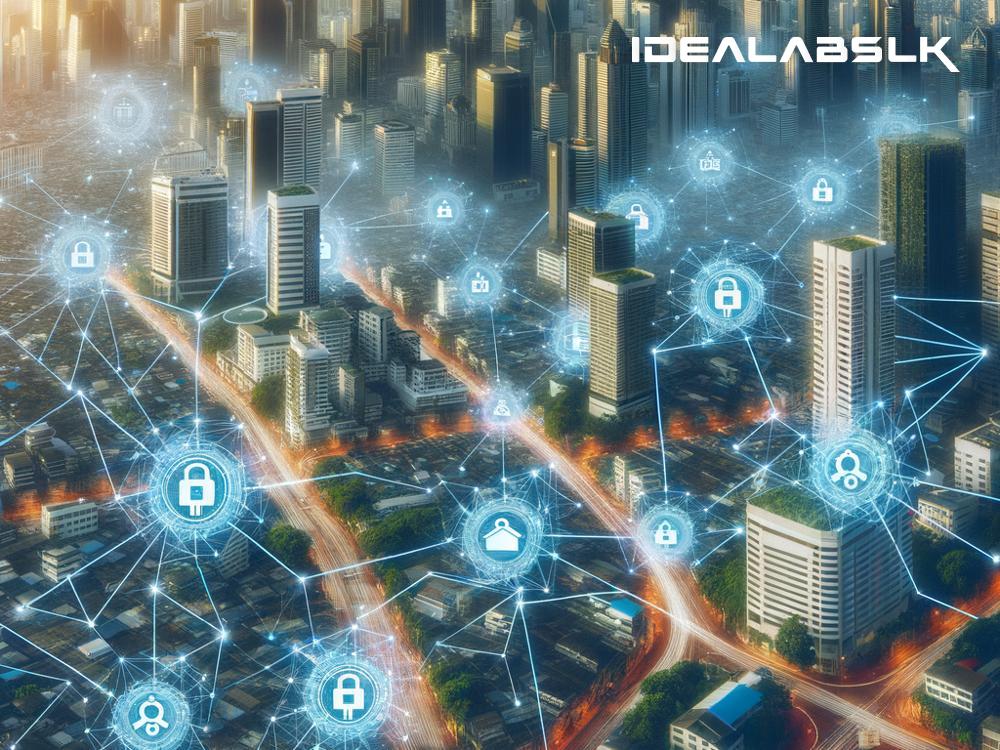Blockchain for Real Estate Transaction Automation: Simplifying the Complex
The real estate world is vast and can often feel like navigating a labyrinth, especially when it comes to transactions. From heaps of paperwork to the extended periods of waiting for approvals, buying or selling property has traditionally been anything but simple. However, a revolutionary technology, blockchain, promises to automate and streamline real estate transactions, potentially changing the game for everyone involved. Here’s how.
Understanding Blockchain in Layman's Terms
Before diving deep into its applications in real estate, let's break down what blockchain is, in simple English. Imagine a ledger or a record book that's shared among a group of people. Every time someone makes a note in this book, everyone else in the group instantly sees it. This note cannot be erased or changed without everyone else agreeing to it. That's blockchain, a system of recording information in a way that makes it nearly impossible to cheat, hack, or manipulate.
The Magic of Blockchain in Real Estate
So, how does this technology specifically apply to real estate transactions? Here are several ways blockchain is poised to revolutionize the industry:
-
Simplifying Paperwork: Real estate transactions involve a mountain of documents, from deeds and financing agreements to inspection reports. Blockchain can securely store these documents online, allowing all parties to access them anytime, anywhere. This not only reduces the need for physical paperwork but also the risk of losing important documents.
-
Speeding Up Transactions: Traditional real estate transactions can take weeks or even months, bogged down by the slow processing of documents and payments. Blockchain, with its ability to automate and verify transactions quickly, can drastically reduce this timeframe, making buying or selling properties faster and more efficient.
-
Reducing Fraud: Fraud is a significant concern in real estate, with forged documents and false identities being common issues. Since blockchain records are nearly impossible to alter unnoticed, the technology offers a potent solution to reduce the risk of fraud, making transactions more secure.
-
Lowering Costs: Aside from the direct costs involved in buying or selling property, there are numerous hidden fees, including commissions, notary fees, and inspection charges. Blockchain can automate several of these processes, potentially reducing the need for intermediaries like brokers and lawyers, which in turn can lower the overall cost of real estate transactions.
-
Improving Transparency: Often, buyers and sellers operate in a haze of partial information, not fully aware of the property's history or its legal standing. Blockchain's transparent nature means that every transaction related to the property is recorded in a way that's easily accessible, providing a clear, tamper-proof history.
Real-World Applications: Blockchain in Action
Several startups and established companies are already exploring ways to integrate blockchain into real estate. For example, some platforms allow property ownership to be tokenized — essentially, turning property into digital shares that can be bought and sold over blockchain. This not only makes property investment more accessible but also opens up global markets, allowing someone in one country to easily invest in property in another.
Furthermore, governments and municipalities are looking into using blockchain to manage land registry systems. This could cut red tape, reduce corruption, and make property ownership more transparent and equitable.
Challenges and the Road Ahead
Despite its potential, blockchain in real estate is not without challenges. Legal and regulatory hurdles are significant, given the tightly controlled nature of property ownership and transfer laws. Additionally, the technology itself is still evolving, and issues like data privacy and interoperability between different blockchain systems need to be addressed.
However, the momentum behind blockchain's application in real estate suggests these are hurdles that can be overcome. As technology matures and more stakeholders see its benefits, we could see a future where buying a home is as simple and fast as making an online purchase.
Conclusion
Blockchain technology offers a promising solution to many of the challenges that have long plagued real estate transactions. By automating processes, reducing costs, and increasing security and transparency, blockchain could make the dream of a simplified, efficient real estate market a reality. While there are certainly challenges to be faced and questions to be answered, the potential benefits are too significant to ignore. As we move forward, the impact of blockchain on real estate could very well redefine the way we think about property ownership and investment.

